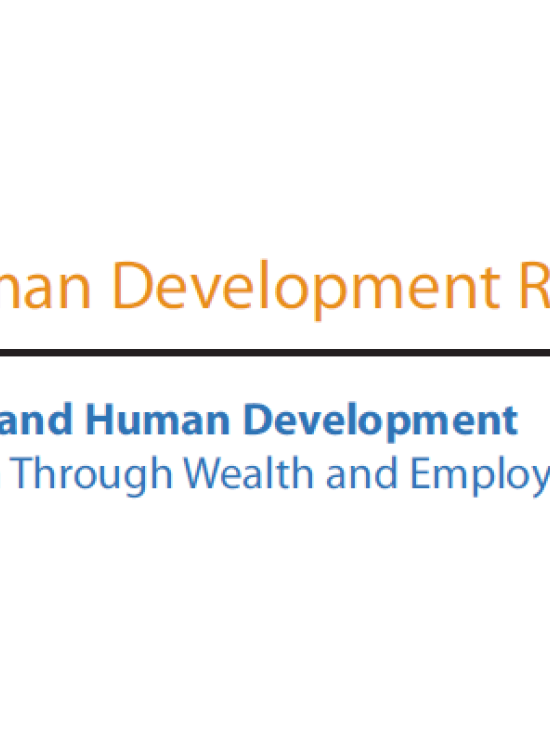National Human Development Report: Zambia

Download Report by Language
Document
zambiahumandevelopmentreport2016.pdf
(1.7 MB)
Citation
UNDP (United Nations Development Programme). 2016. National Human Development Report: Zambia. New York.
National Human Development Report: Zambia
Posted on: January 01, 2016
Both theoretical foundations and empirical analysis demonstrate a direct but more intricate relationship between industrialization and human development. Human development is defined as the process of expanding individual freedoms to live long, healthy and creative lives; to advance towards other goals that they have reason to value; and to engage actively in shaping equitable and sustainable development on a shared planet. Fundamental to enlarging peoples' choices is the building of human capacities – the range of things that people can do or be in life. Investing in people will enable growth and empower people, thus developing human capacities. Employment, either through self-employment or wage employment, is the primary means through which individual capabilities are used to earn income. This income can then be diversified into productive assets, including human capital. When average incomes increase, overall consumption increases, savings accelerate and investments in technological advancement, physical assets, education, and skills also expand.
An analysis of the priorities of the poor in Zambia reveals that, beyond income, individuals value a broad range of things. They require adequate food and nutrition, safe and accessible water supply, better medical services, good quality education at all levels, affordable transport services, adequate shelter, secure livelihoods and productive and satisfying jobs (Republic of Zambia, 2002; UNDP, 1996).